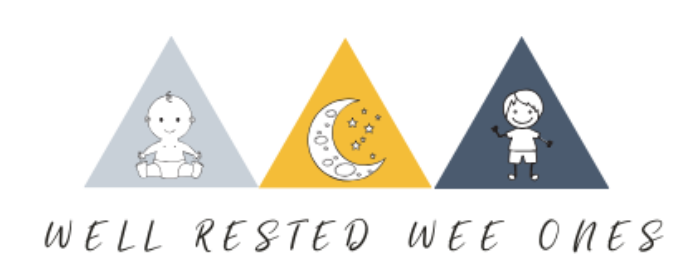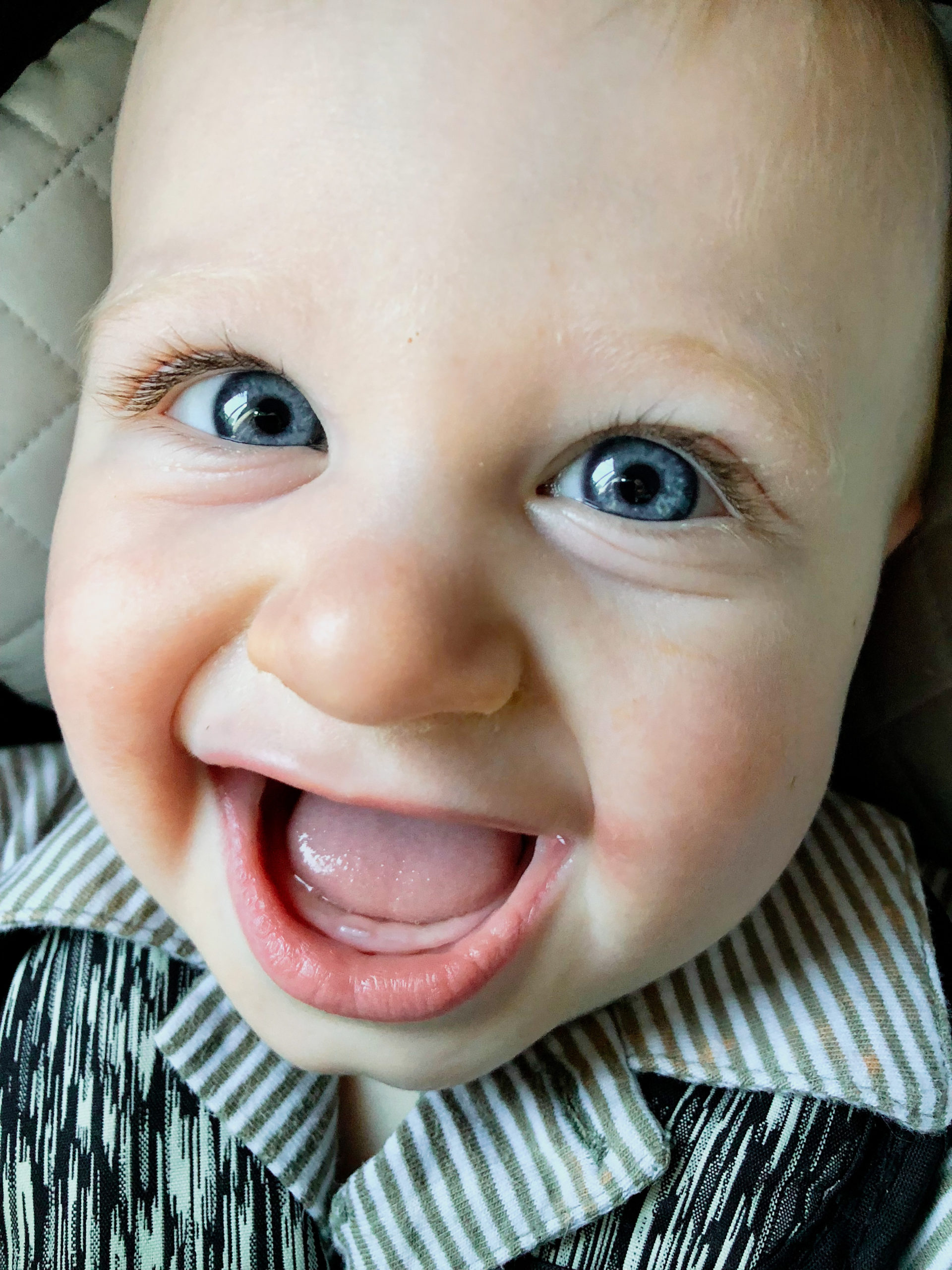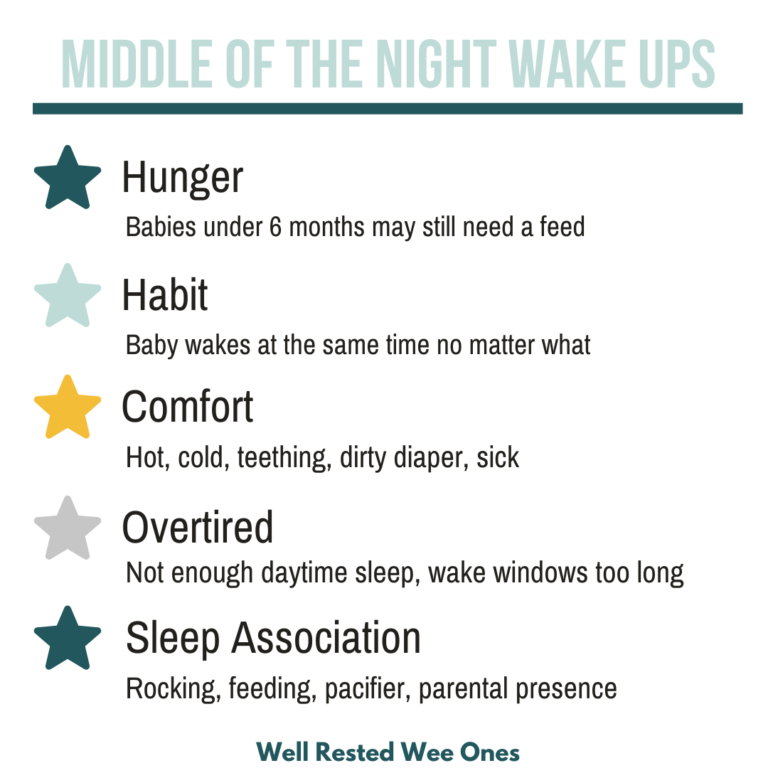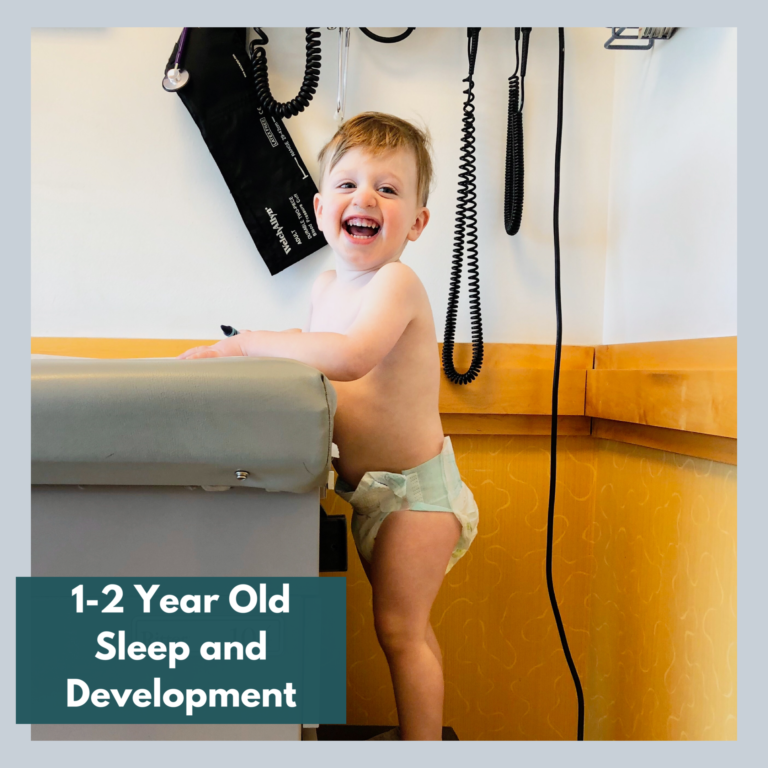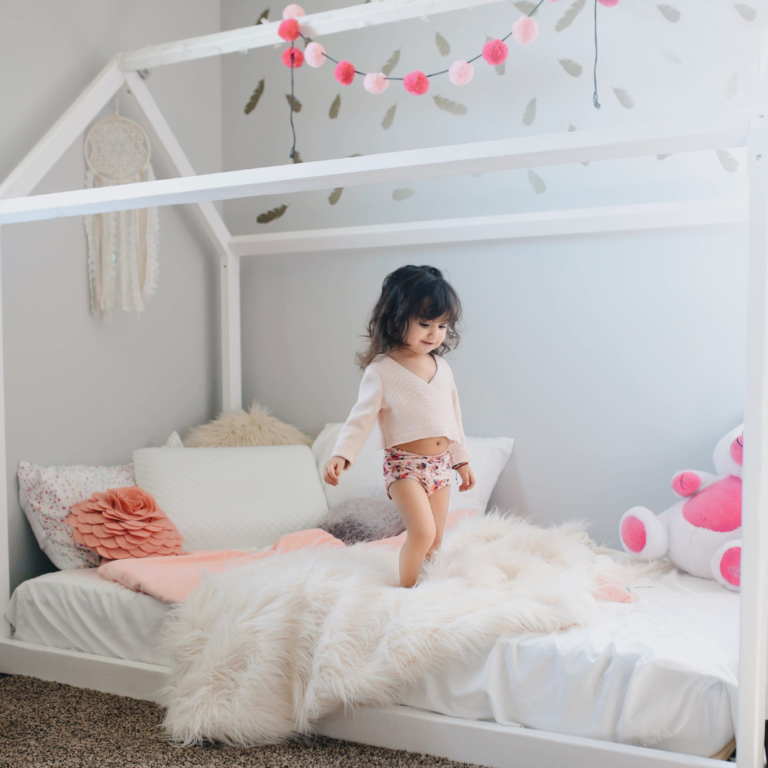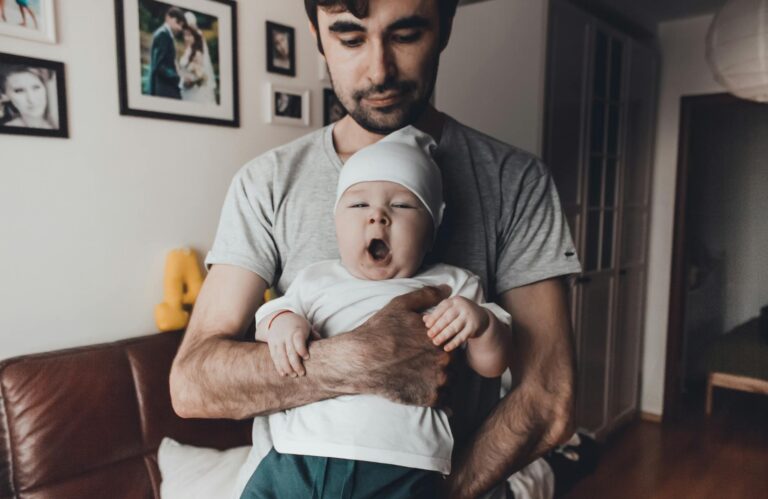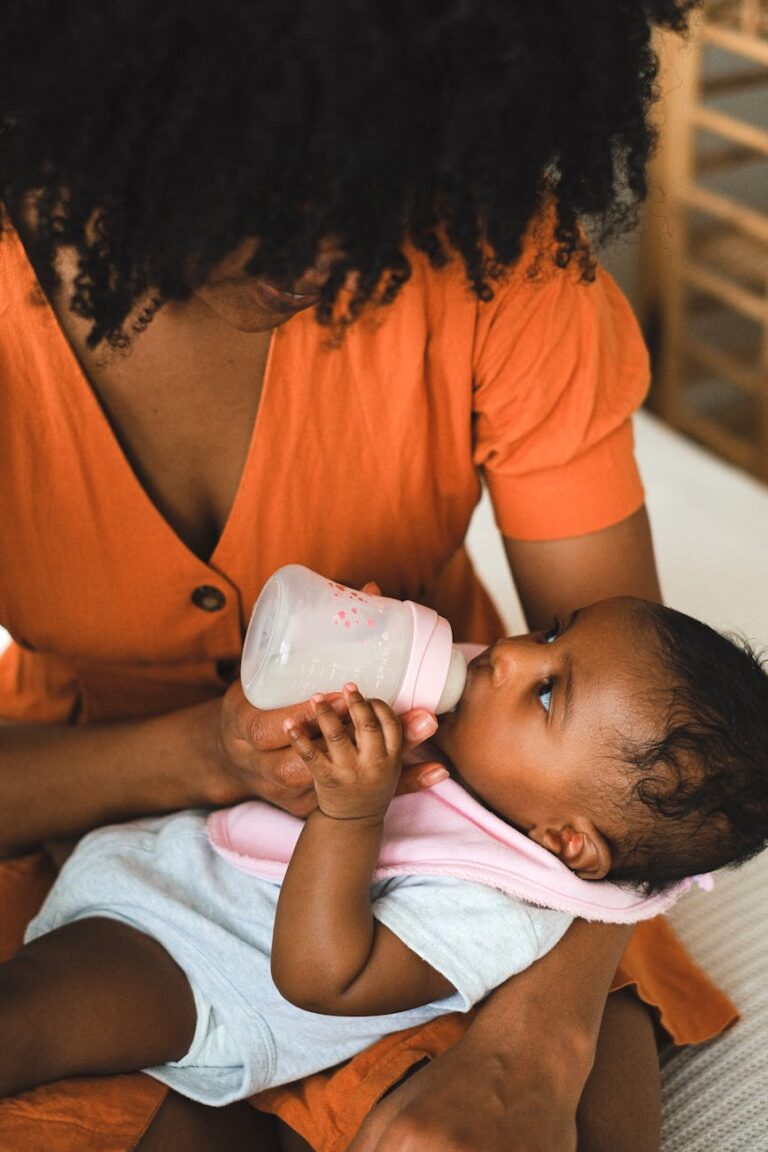Teething and Your Baby’s Sleep
Teething and your baby’s sleep. Does it cause sleep disruptions? How long does it last? What are the symptoms?
These are the most common questions I get asked when it comes to teething and baby sleep.
Let’s Start with the Basics of Teething
Teething typically starts around 6 months, but there is a wide range of variability of when your baby’s first tooth will emerge through the gums!
Many parents think that their baby is an early teether when they start to see an increase in drooling and baby bringing their hands to the mouth at 2-3 months of age, but both are normal developmental processes.
The salivary glands become activated around this age, so your baby starts to drool….A LOT! Some babies drool more than others, so stock up on bibs if your baby drools like a faucet. I had a bib on my second baby ALL THE TIME until he was 2! He was a drooler!!
Your baby is also starting to explore the world by bringing their hands to their mouth as well as grabbing any object possible to put in their mouth!
Hello, chewy baby toys! I encourage you to give your baby teether toys for some relief on their swollen and sore gums. This is also a skill that will help your baby with self-feeding when you start solids!
What are the Common Symptoms?
There have been many studies that look at what symptoms are truly associated with teething and what symptoms are not. This can be quite controversial as many parents swear their baby always has “X” symptoms when they are teething. Keep in mind your baby is unique to all other babies and every baby is different.
These are the most common symptoms that have been found to be associated with teething:
- Redness and/or swelling around the gum where the tooth will erupt
- A rise in body temperature—Your baby will not a true fever with teething–>If your baby’s temperature is greater than 100.4 degrees Fahrenheit it is not because of teething
- Irritability or fussiness
- Increase in drooling
These symptoms are not associated with teething:
- Temperature Above 100.4 degrees Fahrenheit-This is a fever–>If your child truly has a fever, there is an illness process happening and they should be evaluated by your pediatrician as it’s not directly linked to teething. It could coincide, but not because of the tooth
- Diarrhea
- Cough
- Body Rash
These symptoms are commonly reported from families, but not directly linked:
- Change in appetite
- Change in sleep
- Pulling at ears–referred pain from the mouth
- Rash around the mouth or diaper area
What are the best teething remedies?
The best teething remedies are simple and don’t require any expensive or fancy tools!
- Gum Massage
- Cool washcloths (avoid gel-filled)
- Breastmilk, formula, or fruit popsicles (if over 6 months) in mesh feeders
- Acetaminophen or Motrin (if over 6 months)-Discuss with your pediatrician
Motrin can be a lifesaver if your baby is grumpy from teething and is over 6 months.
It has anti-inflammatory properties (gums are inflamed when teething) and lasts longer than Acetaminophen! I recommend giving a dose before bed if the daytime behavior is off and you suspect teething is the culprit. Keep in mind teething symptoms only last 24-72 hours before the tooth erupts so you should not be having more than 2-3 rough nights at a time, if at all! Always check with your pediatric provider before administering any medication to your baby!
Unfortunately, homeopathic remedies, amber teething necklaces, and numbing agents in teething gels are not safe or effective. Necklaces pose a risk for strangulation and/or choking and homeopathic and numbing agents have also been shown to cause potential side effects.
So what about teething and my baby’s sleep?
Teething occurs on and off for many months over the course of 2-3 years or until your baby has all 20 teeth!
Many parents like to blame teething on poor sleep habits. Yes, your baby may have some discomfort, but it’s not so painful that your baby has weeks and months of disrupted sleep.
Teething symptoms typically last 24-72 hours before the tooth erupts through the gums. At most, you are looking at 2-3 off nights from each tooth! Your baby may not even have symptoms with some teeth and some may emerge at the same time, so overall, you’re not looking at months on end of poor sleep.
If this was the case, no one would have a baby that sleeps in the first 3 years and that is not the case. If this is your situation, I recommend looking at establishing a healthy sleep foundation so that your baby is able to sleep independently. Ideally, this would occur before your baby starts teething between 4-6 months old, but it’s never too late!
Studies do show that getting less than the recommended amount of sleep heightens pain sensitivity, so if your baby is not sleeping well, to begin with, then your baby’s sleep problems may worsen during times of teething. This is why it’s so important for your baby to get as much sleep as possible so that they are better suited to get through the teething ups and downs.
Every baby has an off night, but it’s easier to discern teething symptoms in a baby that normally sleeps well at baseline
Every baby has nights where sleep is “off.” This is normal and happens to parents too. It’s easier to get to the bottom of an “off night” if you have established healthy sleep habits and your Wee One normally sleeps through the night.
If they wake up crying at an unusual time and don’t go back to sleep easily you should check on them to make sure they are safe and they don’t have a dirty diaper! If they are restless all night, they may have been uncomfortable.
Again, this is easier to tell if you have a baby or toddler that consistently sleeps well overnight. If you see a tooth emerge the next day, it may have been due to teething, but if not, then it could have just been an off night. If the behavior is off or overnight issues continue for more than 2-3 nights, it’s time to look closer and consult with your pediatric provider!
If your baby needs your assistance to fall and stay asleep, it can be more difficult to differentiate a wake up due to teething
If your baby needs your assistance to fall asleep at bedtime or overnight, you can expect that your baby may take longer to fall asleep if they are uncomfortable which then leads to more parental assistance exacerbating the problem.
If they routinely wake up a few times overnight, it can be more difficult to discern if the wake up is because of a sleep association or due to teething pain. Again, teething symptoms only last a couple of days, so if you are experiencing more than a couple of “rougher” than usual nights I would recommend some more investigation.
What Can I Do to Help My Baby Sleep when Teething?
- Maintain a consistent daytime and bedtime routine
- Try to establish a healthy sleep foundation with falling asleep independently before your baby starts teething–Ideally between 3-6 months! The Well Rested Course has step by step guidance to help you!
- Offer teething toys throughout the day and during the bedtime and nap time routine
- Look at daytime behavior to help determine if your baby’s sleep will be affected. If they are especially grumpy during the day they will be more likely to have sleep disturbances
- Offer medication before bed if needed with pediatrician approval- Motrin is my go-to for babies over 6 months due to the anti-inflammatory properties and lasts up to 8 hours which is most of the night!
- Give your baby the TLC that they need from you, but try not to create new sleep habits or associations. One night will not break healthy sleep habits, but more than 3 nights will have an impact!
The takeaway message here is that teething is a normal part of the first 3 years of life!
You should not experience weeks or months of sleep disruptions due to teething. If this is the case, your baby likely has other sleep associations that are causing disruptions.
Sleep Resources to help your baby
If overnight wake-ups and short naps are your norm, I have a class for you. The 4-24 Month Well Rested Collection will walk you step-by-step through a completely customizable sleep training experience. In just a few weeks, your baby will be getting 11-12 hours of independent night sleep, AND you’ll have a plan to navigate any future regressions or bumps in your journey. I’ll also help you set up a daytime routine and nap schedule that fits your family’s lifestyle and values. And you’ll get age-specific guidance to meet your baby right where he or she is developmentally at every stage from now until your baby turns 2.
We also offer 1:1 personalized sleep coaching to families starting at 3 months of age! We have multiple options that can help your baby!
Please Share this Post with a Mama!
